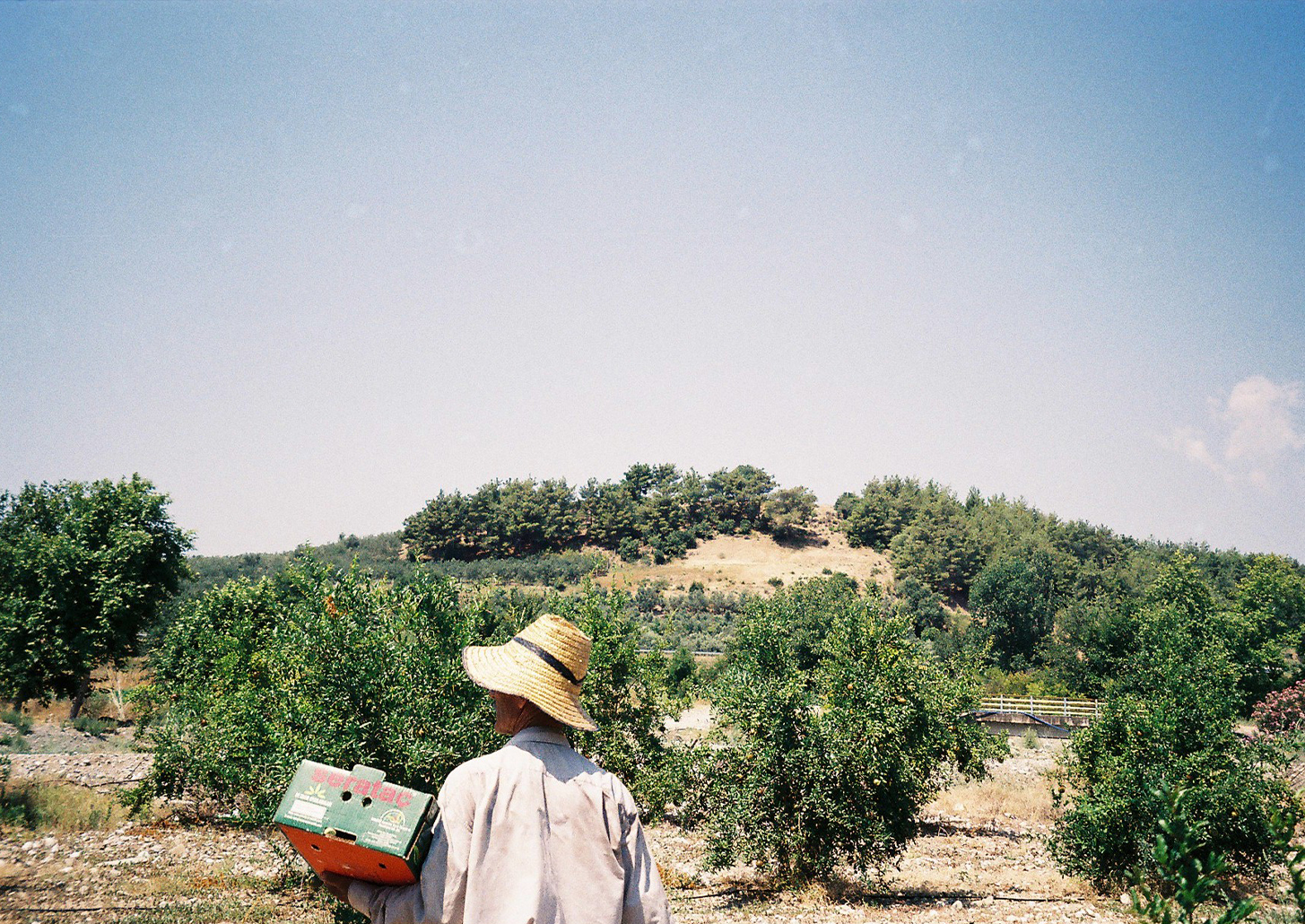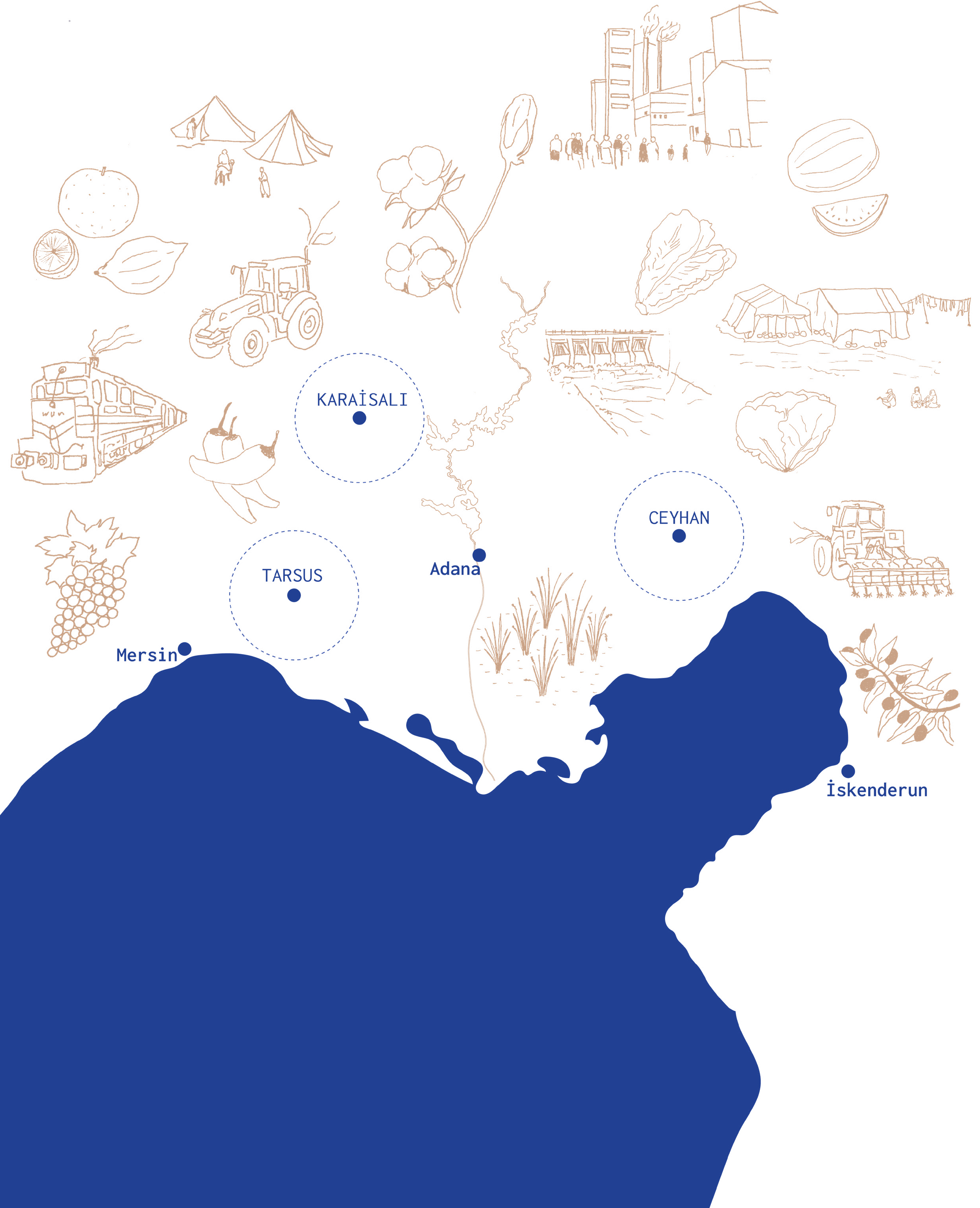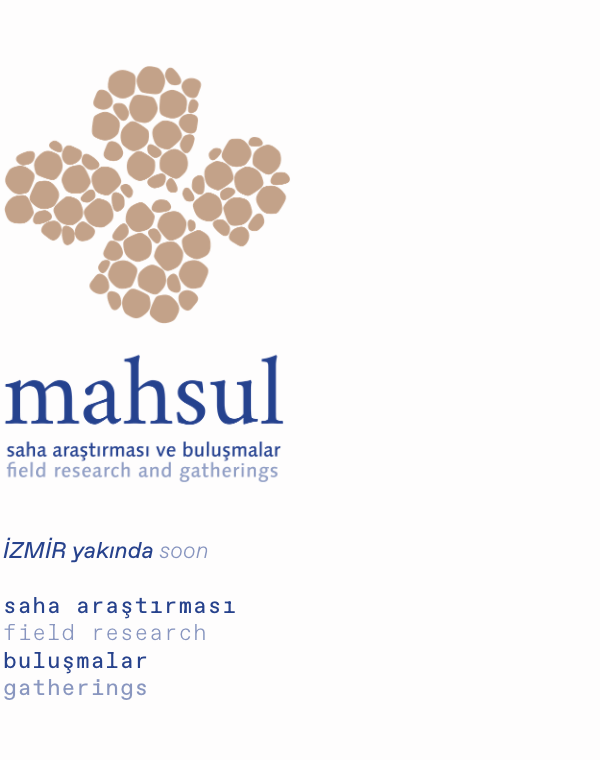Mahsul
Platform dedicated to conducting field research and gathering programs, / Adana, Mersin, İstanbul, İzmir / various collaborators / Supported by EU CultureCIVIC Grassroots Grants in 2022 and BAYETAV Research Funds in 2023
Platform dedicated to conducting field research and gathering programs, / Adana, Mersin, İstanbul, İzmir / various collaborators / Supported by EU CultureCIVIC Grassroots Grants in 2022 and BAYETAV Research Funds in 2023
Mahsul [Yield in EN] focuses on the environmental, cultural and social yields of rural modernisation projects and industrial agricultural practices in Çukurova.
Mahsul will be on the field as of 2023 and meet with the yields of Çukurova. In addition to field explorations and encounters, Mahsul will organize public gatherings and foster conversations on yields.
The main driver of the agrarian transformation of region have been associated with colonial aspirations of the former Ottoman Empire and modernisation ideals of the current nation state, Republic of Turkey. Various interventions and projects like the railway line,cotton colonies, factories, water dam and power plants were designed and realized in Çukurova in 20th Century. Mahsul Project aims to trace the starting points of these interventions and their environmental and cultural and social ‘yields’ on the landscapes of Çukurova and human-land relationships.
︎ Visit mahsul.info website for more information 

Photo 2: My father working in the field where young olive trees and pomegranates grow, 2015, Karaisalı, Turkey

Diagram: Preliminary research sketches

